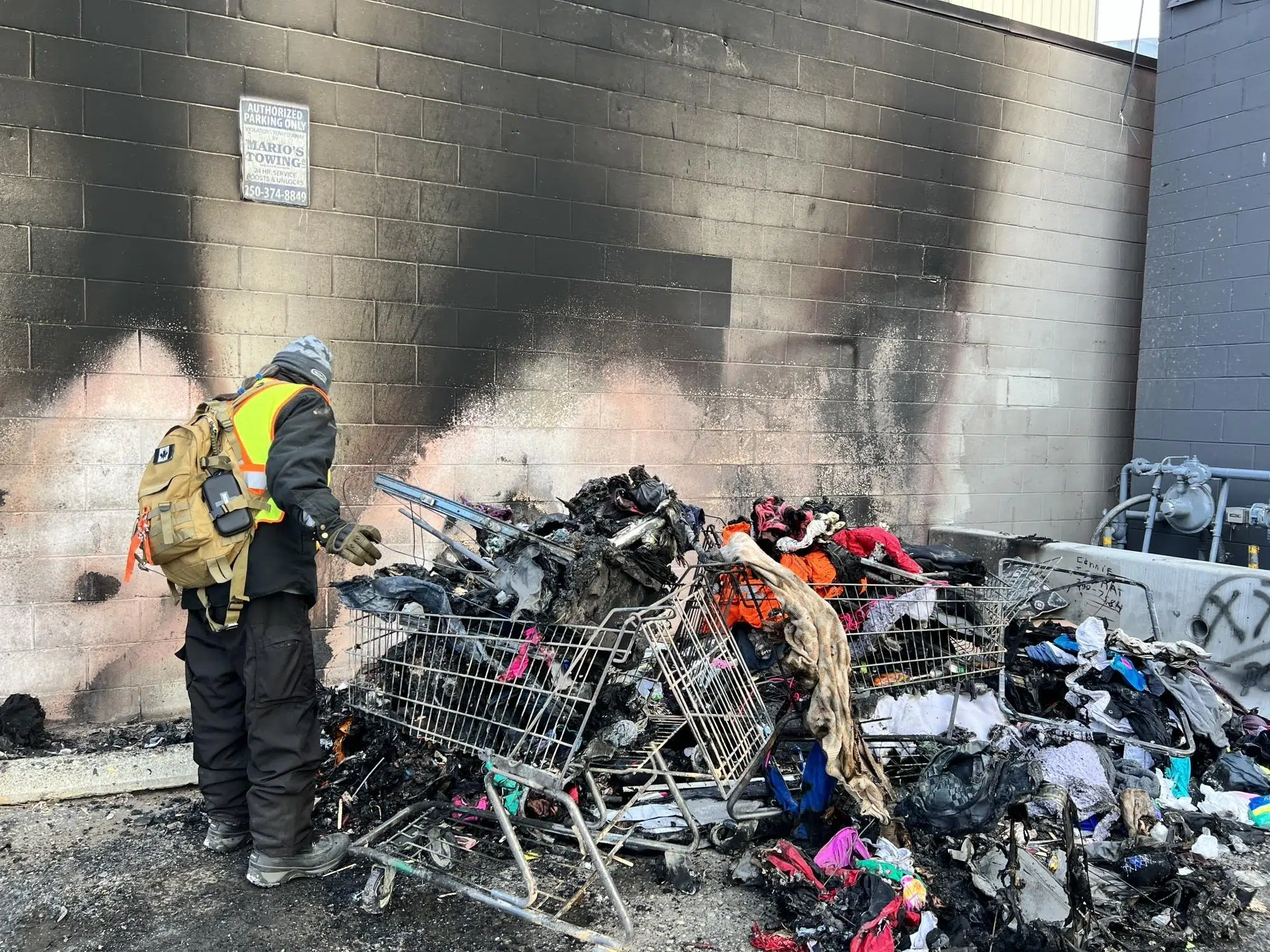
The 'Clean Team' collecting materials after an encampment fire on the North Shore in 2022/via North Shore BIA
The North Shore Business Improvement Association has secured some funding to keep the Clean Team running into the summer.
Executive Director Jeremy Heighton says they’ve obtained roughly $15,000 to keep the group operating until the end of July through funding from the province, the City of Kamloops, and a sponsorship through Canadian Tire.
He says the Clean Team, which is a group of recovering individuals tasked with cleaning up garbage and other things left over by those on the streets, will hit up the North Shore and Downtown commercial corridors on a rotating basis.
“We’ve had a well-rounded group of individuals who are really excited by the potential for this program to really become something much bigger than just garbage removal, but rather to empower people to seize back some of the self-pride and self-worth in their lives and make tremendous strides forward in their healing journey,” Heighton said on the NL Noon Report.
He notes the new cohort of Clean Team members will roll out on April 3.
“We will either break into two teams of three or we will maintain a team of six; it really depends because we need to meet people where they are in this program,” Heighton said. “So that means that in some cases we may not be able to split the teams apart and we may have to keep them together.”
“But having said that, a team of six can usually move twice as far as a team of three right? So there are efficiencies to be gained in that program and so we’ll continue to look at that as we develop people and as we help people to step forward.”
Meanwhile, Heighton says they are in talks with Open Door Group on a two-year research and innovation project to try and secure in funding to keep the Clean Team running beyond this summer.
“Basically what we would do is over the period of two years, we would do some significant data collection on milestones and how the team is being used and what kind of social development opportunities come out of it, what kind of employment supports come out of it,” Heighton said.
He notes the goal of that proposal is to build a base where the province sees the value in not only funding complex care, healing services, or harm prevention but also funding opportunities to help get people back onto their feet.
“Not only do we cut 4,500 pounds of trash or remove “X” number of graffiti tags, but we also give people the empowerment to get back on their feet and live a positive and productive life,” Heighton added.
“We’ve had some slips and falls, so to speak metaphorically, with some of our first couple of cohorts; and you know, the first question they keep asking when they get back on their feet is: “is my job still there? Can I still go to work? There’s something very powerful in the people who can sort of have a relapse or have a moment, can still have some gainful employment, that really helps them to get back on their feet.”
The funding for the Clean Team project, which launched last fall, was due to expire at the end of March.















